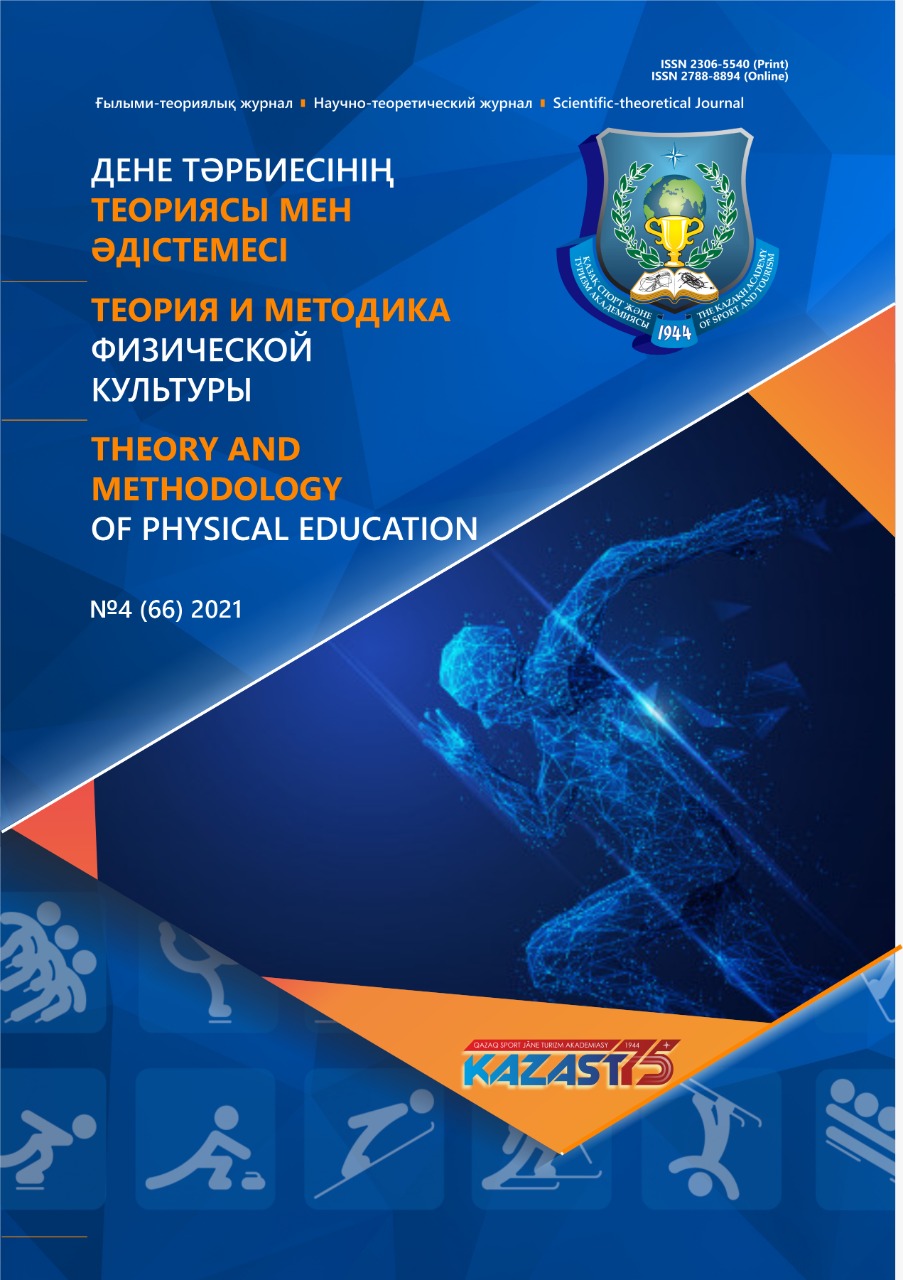Personality, activity and training of the libero in volleyball
DOI:
https://doi.org/10.48114/2306-5540_2021_4_49Keywords:
volleyball, libero, personality profile, game tactics, ball reception, rally.Abstract
The article examines the features of the personal structure, the nature of motor actions, pedagogical, socio-psychological and emotional aspects of the libero's activity in modern volleyball. The historical background of the reasons for the appearance of this role in the structure of the volleyball team is given. The main research methods include R. Cattell's 16-factor personality test, E.A. Kalinina, psychological and pedagogical observation of the training and play activity of the libero. The subjects were volleyball liberos, men and women, of the national league teams, performing in the Championship of the Republic of Kazakhstan. According to the results of the study of personal properties, a personality structure and a libero profile were revealed, including 8 characterological properties in men (striving for leadership, reactive balance, high practicality, realism, preference for their decisions, anxiety, independence of thinking, increased level of competitive motivation) and in women 9 ( high indices of dependence, anxiety, sociability, mental tension, physical discomfort and decreased indices of reactive balance and competitive motivation). It was shown that all the needs identified by this technique are in the middle range and correspond to the test standards (25 ± 5 points), with the exception of a low level of communication among male liberos, which does not affect the efficiency of the libero's activity. The introduction of the libero contributed to the further improvement of the tactical activity of the teams, optimization of the game functions of the attackers and favorably influenced their socio-psychological and emotional status.


